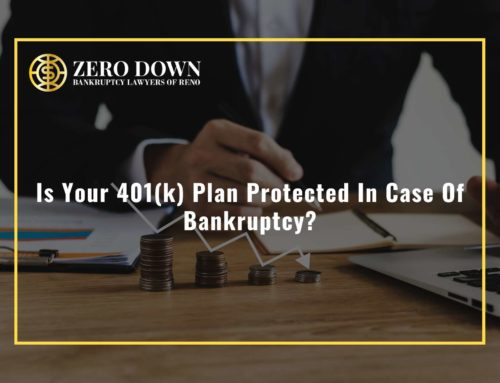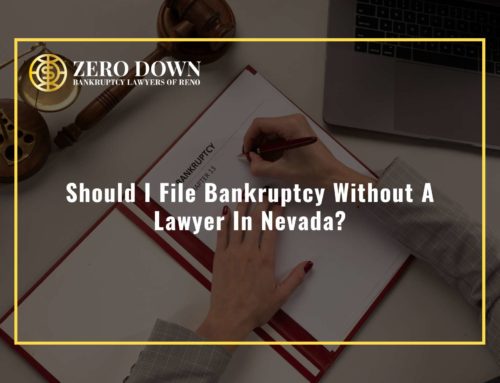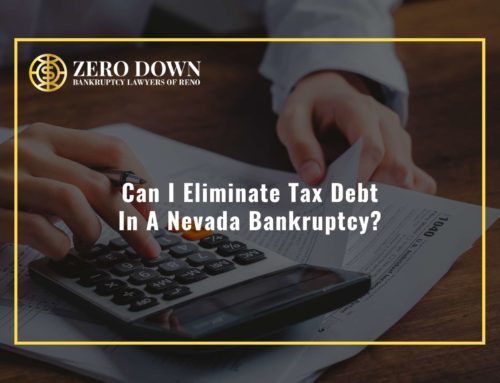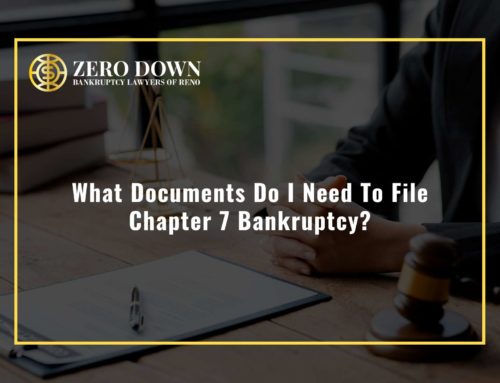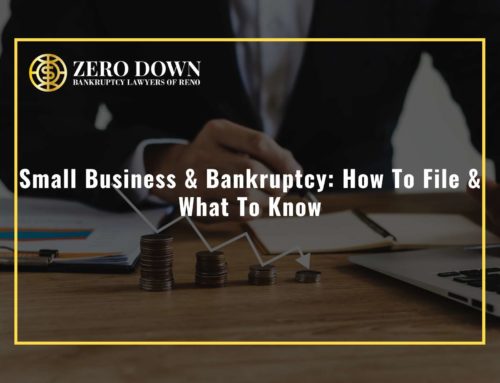What Happens To Your Student Loans When You File Bankruptcy?
Student Loans & Bankruptcy: What You Need To Know
If you’re struggling with debt and considering filing for bankruptcy, you might be wondering what will happen to your student loans. Do they qualify for discharge? This is a crucial question as many people feel overwhelmed with their student loan debt and are looking for ways to make the payments more manageable.
To learn more about how student loan debt can be affected by filing for bankruptcy, consult with an experienced Reno bankruptcy lawyer.
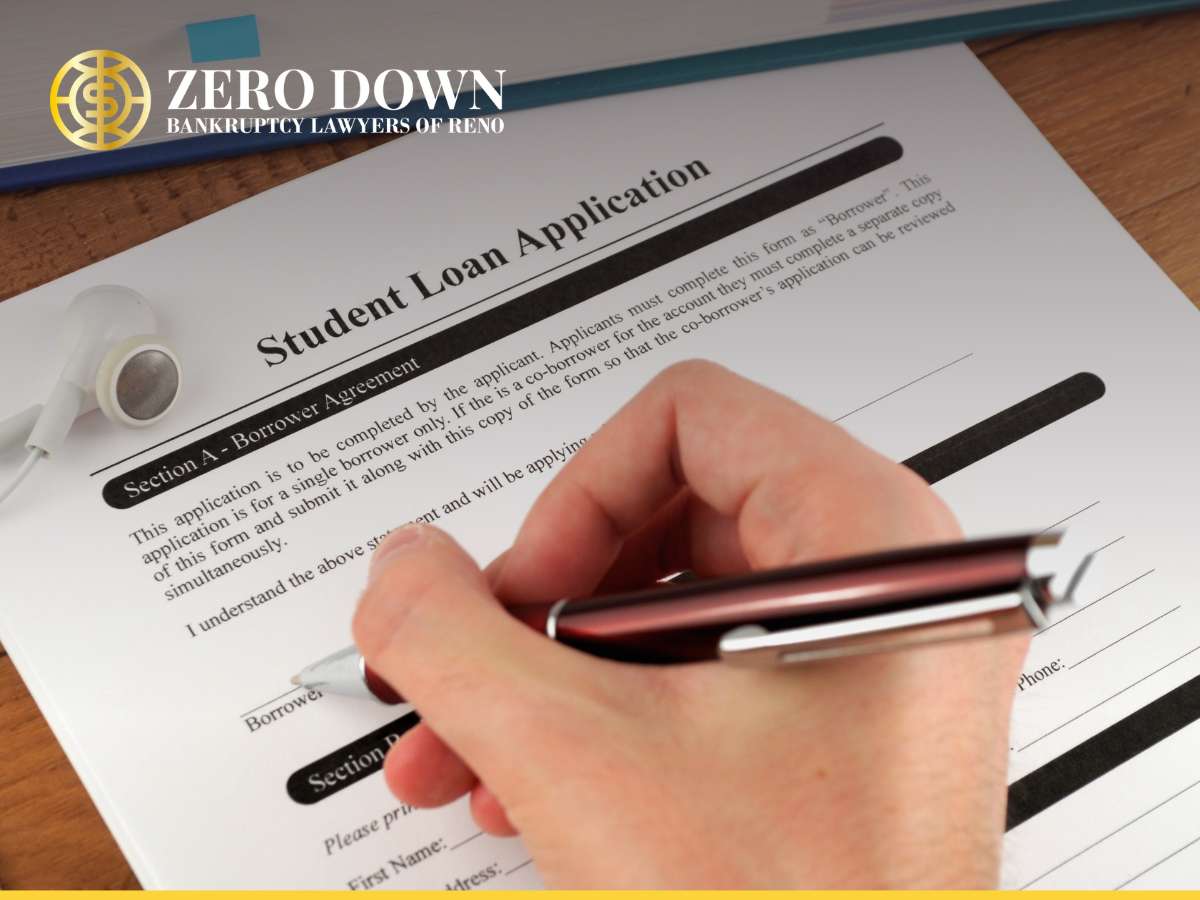
What Will Happen To My Student Loan Debt If I File For Bankruptcy?
In most cases, student loan debt cannot be discharged by filing for bankruptcy. However, in some limited cases, the court will agree to discharge your student loan debt.
The reason that student loan debt is typically not eligible for discharge during bankruptcy is that you always maintain the knowledge you acquired and the degrees that you earned. Eliminating student loan debt means that you are eliminating your obligation to repay the debts that made your education possible. Education and knowledge are different from loans for a home or vehicle in that they are intangible; lenders cannot reclaim your knowledge if you default on your loans like they would be able to foreclose on a home or repossess a vehicle when someone stops making their payments.
However, given the overwhelming amount of student loan debt that many young people are facing, recent years have seen increased criticism of student loan lender protections. The good news is that a discharge may be possible in some cases, depending on how you choose to file. Your Reno bankruptcy law office can assess your situation and help you determine which type of bankruptcy might be right for you.
Chapter 7 Bankruptcy
This type of bankruptcy liquidates some of your assets to help pay for your debts. Some assets, such as your primary home and vehicle and your retirement accounts, may be protected. Your remaining eligible debts are then forgiven and discharged. Some debts, such as child support payments, are not eligible for discharge.
The entire process can take as little as a few months, enabling you to move forward with a fresh start. For many people, filing a Chapter 7 bankruptcy can be extremely helpful because it will immediately stop all creditor harassment and you are not required to make any loan payments during the bankruptcy process.
However, student loan debts cannot be discharged by filing Chapter 7 because there is no tangible asset that can be liquidated. You will owe the full amount of your student loans after your bankruptcy ends. In many cases, the relief from other debts, such as credit card debt, can give an individual the financial ability to repay their student loans after the bankruptcy has been completed.
Chapter 13 Bankruptcy
This type of bankruptcy restructures your debts instead of immediately discharging them. You will be able to maintain all of your assets. In a Reno Chapter 13 bankruptcy, you will make monthly payments toward your debts for up to 5 years, after which all of your remaining debt balances will be forgiven.
Student loan debt is classified as “nonpriority unsecured debt,” which means that it will not be included in your monthly payments to the bankruptcy trustee. You may end up paying the full amount on your student loan debt or nothing at all, or anywhere in between, depending on what other debts you are paying down and what you can afford. If the court determines that paying off your student loans and your other debts is not possible, you may not be required to make any payments on your student loans throughout the 5-year bankruptcy. However, although your lender cannot collect payments from you during this time, your loans will continue to accrue interest. Once your bankruptcy is completed, you will need to pay off the remaining balance of your student debt.
When Might Student Loan Debt Be Discharged?
Although Chapter 7 and Chapter 13 bankruptcies handle student loan debt differently, you may be eligible to have your student loans discharged if you face “undue hardship,” which is not clearly defined. Only a very small number of people who file for bankruptcy can receive this type of discharge. Courts generally consider:
Whether you’ve made a good-faith effort to repay the loan
Whether you could maintain a minimal standard of living if you made your monthly loan payments
Whether your financial hardship is anticipated to continue long-term
Do I Have Other Options For Repaying Student Loan Debt?
For most people, student loans cannot be discharged through bankruptcy, but there are other options to help pay off your loans. This includes federal programs, such as Pay as Your Earn, which can include some amount of loan forgiveness. Many lenders offer income-based repayment plans that can alleviate the weight of monthly payments.
Consult with your Reno bankruptcy attorney to determine whether filing for bankruptcy is right for you.
Get Help From Reno’s Trusted Bankruptcy Lawyers
Debt can be overwhelming, but you don’t have to face it alone. The experienced attorneys at Zero Down Bankruptcy of Reno are ready to guide you through the bankruptcy process and help you understand the best way to get relief from debt. Plus, you don’t pay anything up front! We provide affordable and personalized legal support throughout the entire bankruptcy process and are ready to help you move forward with freedom from debt. Contact us today for your free, confidential consultation!
Zero Down Bankruptcy Lawyers Of Reno
Email: info@renobankruptcylawyer.co
Phone: (702) 842-0700
Las Vegas:
5552 Ashley Creek St
Las Vegas, NV 89135
North Las Vegas:
7251 W Lake Mead Blvd
Las Vegas, NV 89128
Henderson:
1489 W Warm Springs Rd #110
Henderson, NV 89014


